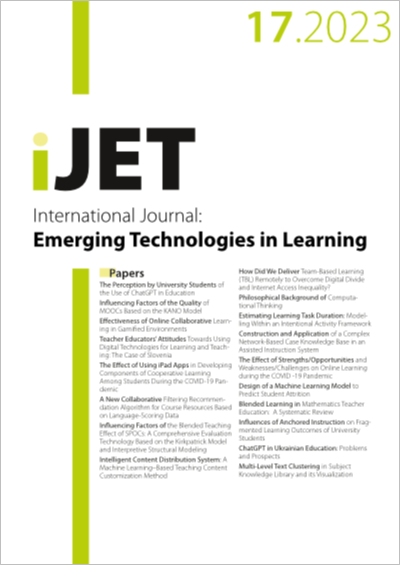ChatGPT in Ukrainian Education: Problems and Prospects
DOI:
https://doi.org/10.3991/ijet.v18i17.42215Keywords:
ChatGPT, artificial intelligence, education, reliability of information, ethics, integrityAbstract
This paper highlights the impact of artificial intelligence (AI) and text-generating models such as ChatGPT (GPT-Generative Pretrained Transformer) on Ukrainian education. It has been found that the introduction of this tool is both beneficial and problematic. On the one hand, it saves time for the information search, facilitates the research process for both teachers and students through proposing ideas, and creates education-related content that emulates human writing. On the other hand, ChatGPT sometimes outputs biased or unverified information that causes misunderstanding among the participants in the educational process. Moreover, in the case of inappropriate application, this tool limits the creativity of the students and decreases their critical thinking skills. The research is based on a survey (Google Forms) distributed through Facebook groups and university networks all over Ukraine. 1035 educational and pedagogical practitioners and teachers took part in the study. The results obtained from the respondents indicate that there are opportunities for the successful implementation of ChatGPT in the educational process. A significant majority of 83.6% of the respondents confirmed that the impact of AI depends on its usage. The survey also highlights various areas for ChatGPT improvements, such as “understanding context,” “giving more accurate answers,” “improving visual capability,” etc. However, it is inevitable to understand that combining human intellectual capability and ChatGPT potential goes beyond the boundaries of human possibilities, speeds up the process of innovative idea generation, and enables the educational process to be more meaningful and effective.
Downloads
Published
How to Cite
Issue
Section
License
Copyright (c) 2023 Zoia Kornieva, Svitlana Fiialka, Tamara Honcharuk

This work is licensed under a Creative Commons Attribution 4.0 International License.



